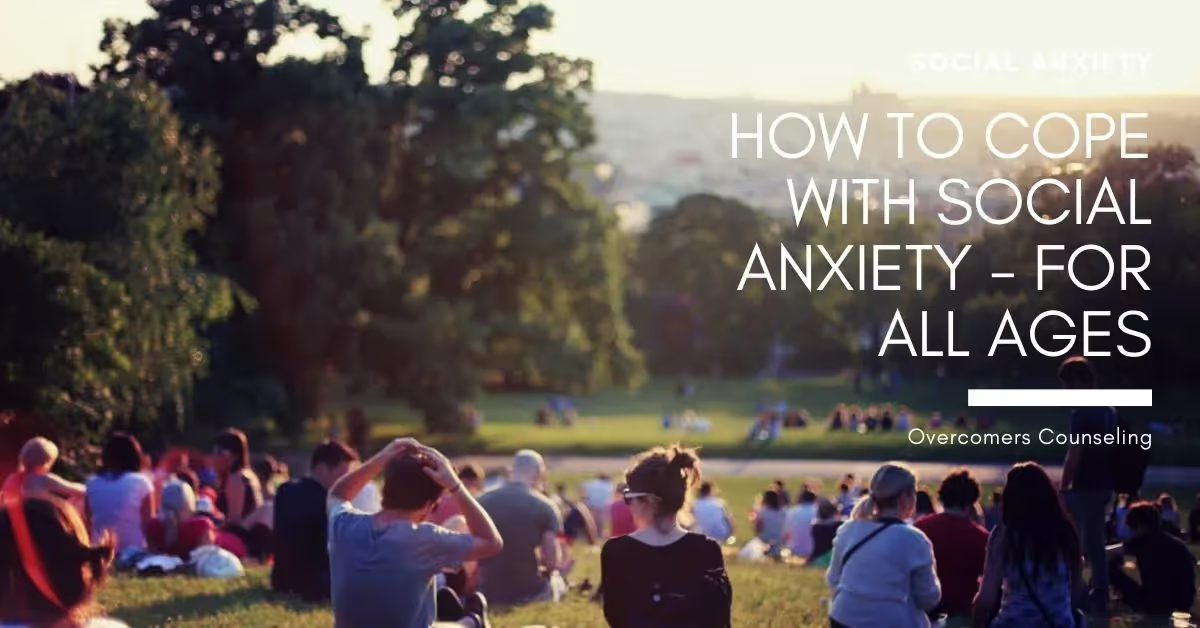If you struggle with social anxiety disorder, small activities may overwhelm you and drain you of your energy. While seeking treatment is a crucial part of...

If you struggle with social anxiety disorder, small activities may overwhelm you and drain you of your energy. While seeking treatment is a crucial part of overcoming social anxiety disorder, it can sometimes take weeks or even months to begin to show improvements.
Fortunately, however, there is a lot you can do in the meantime in order to help cope with social anxiety. Here are some of the best ways to cope with social anxiety in the short term:
While seeking the companionship of others may seem like the last thing you want to do if you struggle with social anxiety, many find it helpful to talk with other people who struggle with the disorder.
Talking through your experience with social anxiety can help you put your struggle into perspective, and show you just how widespread social anxiety disorder really is, thus helping to lessen the shame and stigma you may feel as a result of social anxiety disorder.
While there are in-person support groups for social anxiety, these may be overwhelming for some people who struggle with the disorder.
Fortunately, however, the internet has enabled those with social anxiety to connect in group forums online, a medium which may be more comfortable to those with social anxiety.
While deep breathing and meditation may not cure social anxiety, they can go a long way to help lessen the intensity of symptoms, particularly during a severe, acute episode.
If you find yourself in a situation that inflames your social anxiety symptoms, such as a party or work event, practicing deep breathing can help you center yourself and retain composure until the worst of the anxiety subsides.
Meditation, likewise, has been shown to help lessen symptoms of anxiety by allowing individuals to relax and allow their anxious thoughts to run their course without attempts at judgment or cessation.
Proper deep breathing and meditation practices can be found online for free.
Some say ignorance is bliss, and while this may be true in some cases, when it comes to your health, it couldn't be further from the truth.
Understanding the root causes of your struggle and how it can be overcome can help separate any sense of guilt you may feel from your sense of identity.
When it comes to conditions like social anxiety disorder, it is common for individuals to feel as if they are "broken", or that there is something wrong with them.
While it is true that social anxiety disorder is a maladaptive mental health condition, the presence of such a disorder does not mean that there is anything "wrong" with the individual as a person.
Understanding this distinction is helpful in giving patients a more optimistic outlook on their condition and its prognosis.
Addressing anxiety is crucial because it can significantly impact your quality of life and overall well-being. Left untreated, anxiety can lead to more severe mental health issues, relationship problems, and difficulty functioning in daily life.
Ignoring anxiety can exacerbate symptoms and make it more challenging to manage over time. This can result in a negative impact on your personal, professional, and social life, leading to feelings of isolation and even depression.
Yes, Medicaid provides insurance coverage for therapy services specifically designed to help individuals struggling with anxiety, depression, and other mental health conditions.
It's important that you feel comfortable discussing personal matters with your therapist in order to open up and get more out of therapy sessions; therefore finding someone who meets certain criteria like experience level, expertise areas, and personality is key when selecting a therapist who can give meaningful feedback about how best handle issues related to anxiety or other mental health concerns.
To reduce your anxiety, you can practice relaxation techniques such as deep breathing, progressive muscle relaxation, guided imagery, and mindfulness practices. Additionally, regular exercise has been found to be beneficial in managing stress and improving mental health.
The duration of anxiety counseling varies for each individual, depending on the severity of their anxiety and their progress in therapy. Our therapists will regularly assess your progress and adjust your treatment plan as needed.